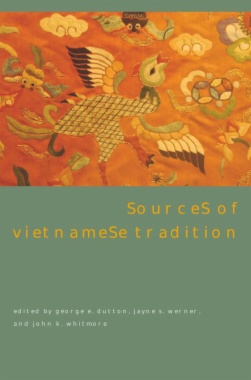Sources of Vietnamese Tradition provides an essential guide to two thousand years of Vietnamese history and a comprehensive overview of the society and state of Vietnam. Strategic selections illuminate key figures, issues, and events while building a thematic portrait of the country's developing territory, politics, culture, and relations with neighbors. The volume showcases Vietnam's remarkable independence in the face of Chinese and other external pressures and respects the complexity of the Vietnamese experience both past and present.
The anthology begins with selections that cover more than a millennium of Chinese dominance over Vietnam (111 B.C.E.–939 C.E.) and follows with texts that illuminate four centuries of independence ensured by the Ly, Tran, and Ho dynasties (1009–1407). The earlier cultivation of Buddhism and Southeast Asian political practices by the monarchy gave way to two centuries of Confucian influence and bureaucratic governance (1407–1600), based on Chinese models, and three centuries of political competition between the north and the south, resolving in the latter's favor (1600–1885). Concluding with the colonial era and the modern age, the volume recounts the ravages of war and the creation of a united, independent Vietnam in 1975. Each chapter features readings that reveal the views, customs, outside influences on, and religious and philosophical beliefs of a rapidly changing people and culture. Descriptions of land, society, economy, and governance underscore the role of the past in the formation of contemporary Vietnam and its relationships with neighboring countries and the West.

